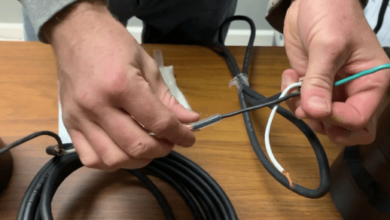The Essential Guide to Confinement Nanny Services in Singapore

In Singaporean culture, the role of a confinement nanny holds significant importance, especially during the postpartum period. Families often seek the assistance of experienced professionals to aid new mothers in their recovery journey and to provide essential support in infant care.
Importance of Confinement Nanny in Singapore
Cultural Significance
In Singapore, the tradition of postpartum confinement, known as “confinement month” or “sitting month,” is deeply ingrained in various cultures, including Chinese, Malay, and Indian. It is believed that during this period, new mothers require special care and attention to regain their strength and vitality after childbirth. Confinement nannies play a crucial role in upholding these cultural practices by offering personalized care and guidance to mothers during this delicate phase.
Postpartum Recovery Support
The postpartum period is a critical time for mothers, both physically and emotionally. Confinement nannies provide invaluable support by assisting with tasks such as breastfeeding guidance, preparing nourishing meals, and ensuring proper rest for the mother. Their presence allows new mothers to focus on their recovery while confidently entrusting the care of their newborn to experienced hands.
Qualities of a Good Confinement Nanny
Experience and Training
A reputable confinement nanny should possess extensive experience in postnatal care and infant handling. They should be well-versed in traditional practices as well as modern techniques related to postpartum recovery and newborn care. Additionally, formal training in areas such as breastfeeding support, newborn hygiene, and confinement diet preparation is highly desirable.
Nutritional Knowledge
A crucial aspect of confinement care revolves around nutrition, as mothers require specific dietary considerations to support their recovery and lactation. A competent confinement nanny should possess adequate knowledge of nutrition and be capable of preparing nourishing meals tailored to the mother’s needs. This includes incorporating ingredients that are believed to promote healing and replenishment, such as confinement soups and herbal tonics.
Infant Care Skills
Apart from attending to the mother’s needs, a proficient confinement nanny Singapore should also excel in infant care. This includes bathing the newborn, soothing techniques, diaper changing, and establishing healthy sleep routines. Their expertise in handling newborns ensures that the baby receives proper care and attention throughout the confinement period.
How to Find a Reliable Confinement Nanny in Singapore
Agency vs. Independent Nannies
When seeking a confinement nanny, families can choose between hiring through a reputable agency or engaging an independent nanny. Agencies typically conduct thorough background checks, provide training, and offer replacement nannies in case of emergencies. On the other hand, independent nannies may offer more personalized care but may lack the same level of oversight and support provided by agencies.
Background Checks and References
Regardless of the hiring method, conducting background checks and verifying references is essential to ensure the credibility and reliability of the confinement nanny. This includes reviewing past client testimonials, checking certifications or training credentials, and assessing the nanny’s track record in providing quality care.
Interview Process
During the interview process, families should communicate their expectations clearly and assess the nanny’s suitability for the role. Topics to discuss may include availability, experience, caregiving approach, and any specific cultural practices or dietary preferences. It is also an opportunity to clarify logistical details such as working hours, accommodation arrangements, and remuneration.
Cost of Hiring a Confinement Nanny
Factors Affecting Cost
The cost of hiring a confinement nanny can vary depending on several factors, including the nanny’s experience, qualifications, additional services provided, and the duration of the confinement period. Nannies with extensive experience and specialized skills may command higher fees, while factors such as round-the-clock availability or live-in arrangements may also influence the overall cost.
Average Rates in Singapore
In Singapore, the average cost of hiring a confinement nanny ranges from SGD 2,500 to SGD 6,000 per month, with variations based on the factors mentioned earlier. Families should budget accordingly and factor in additional expenses such as transportation, meals, and any special requirements or preferences.
Tips for Working Effectively with a Confinement Nanny
Clear Communication
Effective communication is key to a successful partnership between the family and the confinement nanny. Establishing open and transparent communication channels ensures that expectations are aligned, concerns are addressed promptly, and any adjustments can be made as needed.
Setting Expectations
It is essential to set clear expectations regarding the roles and responsibilities of the confinement nanny from the outset. This includes outlining specific tasks, preferred caregiving approaches, cultural practices to be observed, and any household rules or routines to follow.
Providing Necessary Supplies
To facilitate the nanny’s work and ensure the comfort of both the mother and the baby, families should ensure that all necessary supplies and amenities are readily available. This includes items such as baby essentials, confinement herbs, cooking ingredients, and adequate living quarters for the nanny if applicable.
In conclusion, the role of a confinement nanny in Singapore is invaluable, offering crucial support to new mothers during the postpartum period. From aiding in physical recovery to providing guidance in infant care and upholding cultural traditions, confinement nannies play a pivotal role in easing the transition into motherhood. By understanding the qualities of a good confinement nanny, knowing how to find a reliable one, and fostering effective communication and collaboration, families can experience a smoother and more fulfilling postnatal journey.



